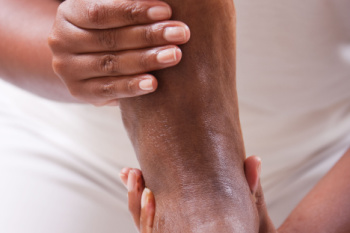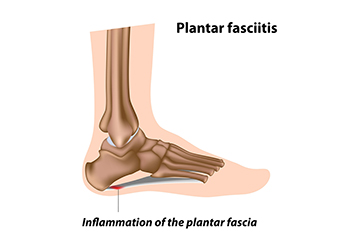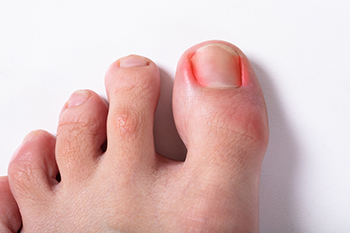Items filtered by date: March 2024
Preventing Falls and Protecting Home Safety With Smoke Alarms

Home safety is important for everyone, particularly the elderly and children who are more susceptible to falls. Taking proactive measures can significantly reduce the risk of accidents and falls within the household. One vital aspect of home safety is the installation and maintenance of smoke alarms. These devices serve as early warning systems, alerting occupants to the presence of smoke or fire and providing valuable time to evacuate safely. In addition to smoke alarms, several other measures can help prevent falls and enhance overall home safety. These include securing rugs and carpets to prevent tripping hazards, ensuring adequate lighting in hallways and staircases, and installing handrails in bathrooms and along staircases for added support. Clearing clutter and keeping walkways free from obstacles also contribute to a safer living environment. By prioritizing home safety and implementing preventive measures, individuals can protect their feet from the injuries that falling can cause. If you are seeking additional information about effective fall prevention techniques, it is suggested that you confer with a podiatrist.
Preventing falls among the elderly is very important. If you are older and have fallen or fear that you are prone to falling, consult with Judson Siegel, DPM from Assabet Family Podiatry. Our doctor will assess your condition and provide you with quality advice and care.
Every 11 seconds, an elderly American is being treated in an emergency room for a fall related injury. Falls are the leading cause of head and hip injuries for those 65 and older. Due to decreases in strength, balance, senses, and lack of awareness, elderly persons are very susceptible to falling. Thankfully, there are a number of things older persons can do to prevent falls.
How to Prevent Falls
Some effective methods that older persons can do to prevent falls include:
- Enrolling in strength and balance exercise program to increase balance and strength
- Periodically having your sight and hearing checked
- Discuss any medications you have with a doctor to see if it increases the risk of falling
- Clearing the house of falling hazards and installing devices like grab bars and railings
- Utilizing a walker or cane
- Wearing shoes that provide good support and cushioning
- Talking to family members about falling and increasing awareness
Falling can be a traumatic and embarrassing experience for elderly persons; this can make them less willing to leave the house, and less willing to talk to someone about their fears of falling. Doing such things, however, will increase the likelihood of tripping or losing one’s balance. Knowing the causes of falling and how to prevent them is the best way to mitigate the risk of serious injury.
If you have any questions, please feel free to contact our offices located in Plainville, Marlborough, and Somerset, MA . We offer the newest diagnostic and treatment technologies for all your foot care needs.
Let the Expert Treat Your Ingrown Toenails
Our Feet Deserve Care

Taking care of your feet daily is essential due to their pivotal role in your overall health and well-being. Our feet support your body's weight, facilitate mobility, and enable you to carry out daily activities. Neglecting foot care over time can result in various issues, including calluses, corns, cracked heels, fungal infections, and more serious conditions like plantar fasciitis or bunions. These ailments not only cause discomfort but can also impair mobility and diminish quality of life. By prioritizing foot care and seeking professional help from a podiatrist when needed, you can ensure that our feet remain strong, healthy, and capable of supporting you throughout our lives. If you would like advice on how to take care of your feet, it is suggested that you schedule an appointment with a podiatrist who can guide you, as well as offer expertise in diagnosing and treating a wide range of foot ailments, promoting optimal foot function and overall well-being.
Everyday foot care is very important to prevent infection and other foot ailments. If you need your feet checked, contact Judson Siegel, DPM from Assabet Family Podiatry. Our doctor can provide the care you need to keep you pain-free and on your feet.
Everyday Foot Care
Often, people take care of their bodies, face and hair more so than they do for their feet. But the feet are a very important aspect of our bodies, and one that we should pay more attention to. Without our feet, we would not be able to perform most daily tasks.
It is best to check your feet regularly to make sure there are no new bruises or cuts that you may not have noticed before. For dry feet, moisturizer can easily be a remedy and can be applied as often as necessary to the affected areas. Wearing shoes that fit well can also help you maintain good foot health, as well as making it easier to walk and do daily activities without the stress or pain of ill-fitting shoes, high heels, or even flip flops. Wearing clean socks with closed shoes is important to ensure that sweat and bacteria do not accumulate within the shoe. Clean socks help to prevent Athlete’s foot, fungi problems, bad odors, and can absorb sweat.
If you have any questions please feel free to contact our offices located in Plainville, Marlborough, and Somerset, MA . We offer the newest diagnostic and treatment technologies for all your foot and ankle needs.
Common Causes of Plantar Fasciitis

Plantar fasciitis, a common cause of heel pain, can arise from various factors related to foot mechanics, lifestyle, and health conditions. One primary cause is repetitive strain on the plantar fascia, the thick band of tissue that supports the arch of the foot. Activities such as running, walking, or standing for prolonged periods can put stress on the plantar fascia, leading to microtears and inflammation. Poor foot mechanics, including high arches, flat feet, or abnormal walking patterns, can also contribute to the development of plantar fasciitis by placing excess strain on the plantar fascia. Additionally, wearing unsupportive footwear or suddenly increasing activity levels can exacerbate the condition. Certain risk factors such as obesity, age, and occupations that require standing or walking for extended periods of time can increase susceptibility to plantar fasciitis. If you have heel pain, it is strongly suggested that you are under the care of a podiatrist who can effectively treat plantar fasciitis.
Plantar fasciitis is a common foot condition that is often caused by a strain injury. If you are experiencing heel pain or symptoms of plantar fasciitis, contact Judson Siegel, DPM from Assabet Family Podiatry. Our doctor can provide the care you need to keep you pain-free and on your feet.
What Is Plantar Fasciitis?
Plantar fasciitis is one of the most common causes of heel pain. The plantar fascia is a ligament that connects your heel to the front of your foot. When this ligament becomes inflamed, plantar fasciitis is the result. If you have plantar fasciitis you will have a stabbing pain that usually occurs with your first steps in the morning. As the day progresses and you walk around more, this pain will start to disappear, but it will return after long periods of standing or sitting.
What Causes Plantar Fasciitis?
- Excessive running
- Having high arches in your feet
- Other foot issues such as flat feet
- Pregnancy (due to the sudden weight gain)
- Being on your feet very often
There are some risk factors that may make you more likely to develop plantar fasciitis compared to others. The condition most commonly affects adults between the ages of 40 and 60. It also tends to affect people who are obese because the extra pounds result in extra stress being placed on the plantar fascia.
Prevention
- Take good care of your feet – Wear shoes that have good arch support and heel cushioning.
- Maintain a healthy weight
- If you are a runner, alternate running with other sports that won’t cause heel pain
There are a variety of treatment options available for plantar fasciitis along with the pain that accompanies it. Additionally, physical therapy is a very important component in the treatment process. It is important that you meet with your podiatrist to determine which treatment option is best for you.
If you have any questions, please feel free to contact our offices located in Plainville, Marlborough, and Somerset, MA . We offer the newest diagnostic and treatment technologies for all your foot care needs.
What Is an Ingrown Toenail?
 Ingrown toenails are a common and often painful foot condition that occurs when the edge of a toenail grows into the surrounding skin. Redness, swelling, and tenderness often accompany an ingrown toenail, which can cause discomfort when walking. The big toe is the most common site for ingrown toenails to appear. Possible causes include improper nail trimming, wearing tight shoes, or sustaining foot injuries. People with naturally curved or thick nails can be more prone to ingrown toenails. Conservative treatments for an ingrown toenail include warm foot soaks and proper nail care, while surgical approaches may be used in more severe cases. Podiatrists specialize in treating ingrown toenails. If you are suffering from an ingrown toenail, it is suggested you make an appointment with this type of doctor who offers treatment options.
Ingrown toenails are a common and often painful foot condition that occurs when the edge of a toenail grows into the surrounding skin. Redness, swelling, and tenderness often accompany an ingrown toenail, which can cause discomfort when walking. The big toe is the most common site for ingrown toenails to appear. Possible causes include improper nail trimming, wearing tight shoes, or sustaining foot injuries. People with naturally curved or thick nails can be more prone to ingrown toenails. Conservative treatments for an ingrown toenail include warm foot soaks and proper nail care, while surgical approaches may be used in more severe cases. Podiatrists specialize in treating ingrown toenails. If you are suffering from an ingrown toenail, it is suggested you make an appointment with this type of doctor who offers treatment options.
Ingrown toenails may initially present themselves as a minor discomfort, but they may progress into an infection in the skin without proper treatment. For more information about ingrown toenails, contact Judson Siegel, DPM of Assabet Family Podiatry. Our doctor can provide the care you need to keep you pain-free and on your feet.
Ingrown Toenails
Ingrown toenails are caused when the corner or side of a toenail grows into the soft flesh surrounding it. They often result in redness, swelling, pain, and in some cases, infection. This condition typically affects the big toe and may recur if it is not treated properly.
Causes
- Improper toenail trimming
- Genetics
- Improper shoe fitting
- Injury from pedicures or nail picking
- Abnormal gait
- Poor hygiene
You are more likely to develop an ingrown toenail if you are obese, have diabetes, arthritis, or have any fungal infection in your nails. Additionally, people who have foot or toe deformities are at a higher risk of developing an ingrown toenail.
Symptoms
Some symptoms of ingrown toenails are redness, swelling, and pain. In rare cases, there may be a yellowish drainage coming from the nail.
Treatment
Ignoring an ingrown toenail can have serious complications. Infections of the nail border can progress to a deeper soft-tissue infection, which can then turn into a bone infection. You should always speak with your podiatrist if you suspect you have an ingrown toenail, especially if you have diabetes or poor circulation.
If you have any questions, please feel free to contact our offices located in Plainville, Marlborough, and Somerset, MA . We offer the newest diagnostic and treatment technologies for all your foot care needs.

